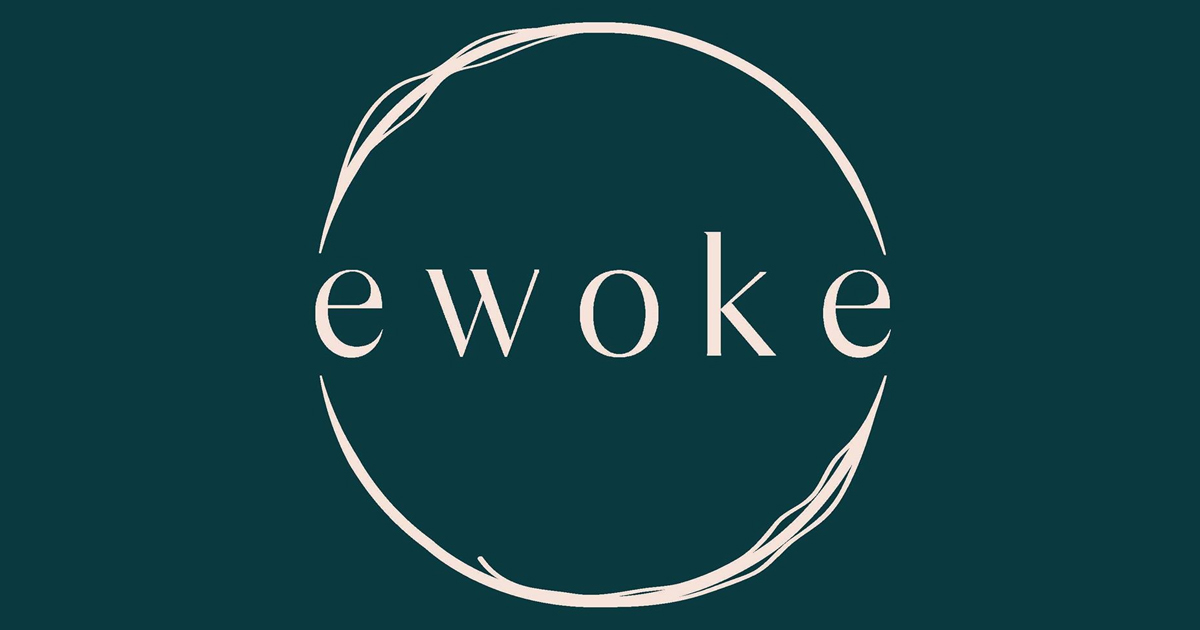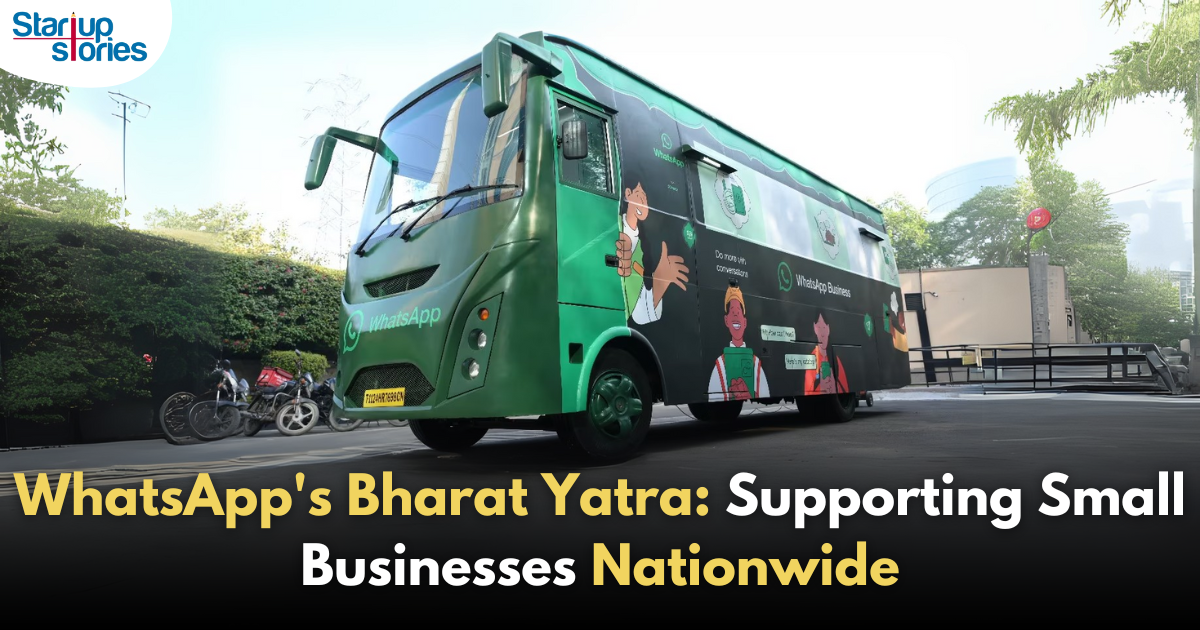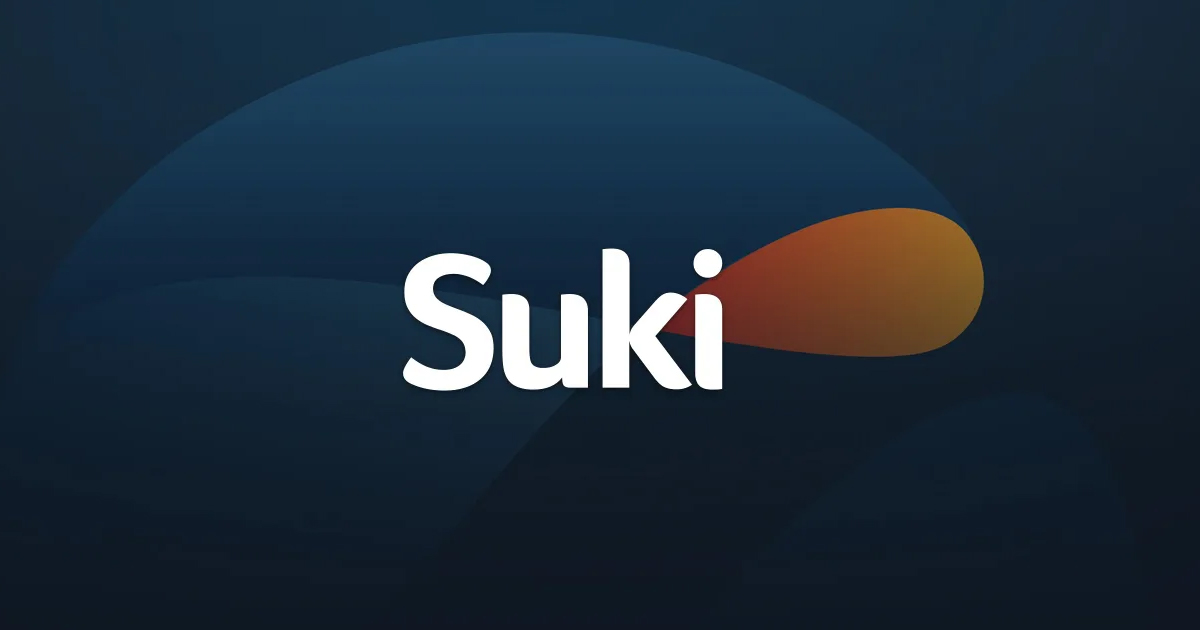Emerging Startup Stories
How Ewoke, A Sustainable Fashion Brand, Is Doing Their Bit For Frontline Forces During Covid-19?

Founded by a National Institute Of Fashion Technology (NIFT) alumnus, Shruti Rawal, Ewoke is a fashion brand for women to make every day wardrobes eco friendly. Ewoke was founded with the vision to empower women with the clothes they wear while making a positive impact on the environment. Fashion is the second largest polluting industry in the world. It takes approximately 2500 litres of water to make a simple white cotton shirt. That is enough water for one person to drink for three and a half years. If a simple cotton shirt can cost us so much, wonder how much the environment has paid for our wardrobes of cotton and polyester?
This striking thought is what inspired the birth of Ewoke. Having worked with designers such as Gaurav Gupta and Shriya Som, Shruti quit her job to follow her conscience. She says, “Our efforts at Ewoke are a work in progress but it will always be you and us together making an impact for this beautiful planet of ours (sic.)”
With the spread of COVID-19, Shruti noticed that the police officers around their home were without masks. The shortage of disposable medical grade masks created a need for non medical masks for non medical frontline workers. Shruti knew she wanted to help with the resources available and she had some hemp fabric available from work, but she was not sure if it was the right choice of fabric for making masks. She started cold calling doctors and medical practitioners and realized that it was an ideal fabric for non medical grade masks. It is hypoallergenic (unlikely to cause an allergic reaction,) naturally resistant to bacteria, Ultraviolet (UV) rays, and gets softer with every wash. Another important factor in making hemp masks was that it saves the planet because hemp is biodegradable and uses almost no water during production. Reusing these masks would reduce the strain on using polyester masks which would end up in landfills. The real challenge was to find a medical grade elastic and due to the unavailability amidst the lockdown, Shruti decided to make the masks with strings. This made it possible for the masks to be adjusted to any size.
Two weeks in and after a lot of prototyping, shruti had her first batch of masks ready. She knew exactly to whom she wanted to give them –the police force risking their lives to protect the citizens every day. The feedback received from the police was very promising and after incorporating some recommendations, the team is making more masks to cover all the police officers on duty in Hyderabad.
The team is currently working with hemp fabric, which is an expensive raw material in comparison to that of polypropylene used in surgical masks. They are planning to start making masks out of another sustainable fabric, Tencel (a type of cellulose fiber) which is less expensive than hemp, when purchased in much larger quantities. Shruti believes fashion has always had a purpose. Today, it is being repurposed to protect us from an infectious disease. However, people need to be aware at all times with respect to anything that they consume and the origins of what they are consuming as this would force everyone to be sustainable and ethical.
If you would like to be a part of this movement, you could contribute or get in touch with Shruti on their Instagram handle.
https://www.instagram.com/ewoke.studio/
Emerging Startup Stories
WhatsApp’s Bharat Yatra: Empowering Small Businesses Across India!

WhatsApp has embarked on a nationwide initiative called Bharat Yatra to empower small and medium businesses (SMBs) across India. This innovative mobile bus tour aims to provide hands-on training and support to help businesses leverage the power of digital technology, particularly through the WhatsApp Business app.
Key Focus Areas
- Digital Skill Enhancement: The Bharat Yatra program is designed to equip SMBs with essential digital skills necessary to thrive in the digital age. This includes training on how to effectively navigate the digital landscape and utilize online tools for business growth.
- WhatsApp Business App Training: Participants will learn how to use the WhatsApp Business app to connect with customers, share product catalogs, and manage inquiries efficiently. This training is crucial for businesses looking to enhance customer engagement and streamline communication.
- Latest Features and Updates: The tour will highlight the latest features of WhatsApp Business, including Meta Verified, which enhances business credibility, and custom messaging options that allow for personalized communication with customers.
- AI Integration: Businesses will also be introduced to the potential of Meta AI integration, which can streamline customer engagement processes and boost overall productivity. This aspect of the training aims to familiarize SMBs with advanced tools that can enhance their operational efficiency.
Tour Details
The Bharat Yatra will kick off its journey in Delhi-NCR, visiting bustling markets such as Laxmi Nagar, Rajouri Garden, and Nehru Place. Over the coming months, the bus will cover key business hubs in cities like Gurugram, Noida, Agra, Lucknow, Indore, Ahmedabad, and others. Each stop will feature interactive demos, expert guidance, and personalized support tailored to the unique needs of local businesses.
Impact on the Indian Economy
By engaging directly with businesses across major cities, WhatsApp aims to create a tangible impact on the Indian economy. The initiative aligns with WhatsApp’s broader goal of supporting small businesses and fostering digital growth in India. According to Ravi Garg, Director of Business Messaging at Meta India, “Small businesses are the backbone of India’s economy, and with the right digital tools, they have the power to supercharge the country’s digital transformation.”
Conclusion
As the Bharat Yatra continues its journey across India, it is expected to empower thousands of SMBs, contributing significantly to India’s economic development and digital transformation. By providing essential training and resources, WhatsApp is not only enhancing business capabilities but also reinforcing its commitment to fostering a robust small business ecosystem in India. This initiative builds on previous efforts such as WhatsApp Se Vyapaar, which aimed to upskill millions of traders, further demonstrating WhatsApp’s dedication to supporting India’s entrepreneurial landscape.
Emerging Startup Stories
Discover Kheyti, The Startup Changing The Lives of Farmers In India

Farming has been an integral part of India’s history and culture for ages. It’s been the foundation of the Indian economy, supporting millions of people with food and jobs. Crops and agriculture hold immense importance in Indian society, not just in terms of money, but also in terms of culture, community, and spirituality.
Farming is a way of life for many people in India, but it can be a difficult and unpredictable business and farmers face a number of challenges, from erratic weather patterns to low market prices for their crops. Kheyti is a social enterprise founded in 2015 by Saumya, Kaushik Kappagantula, and Sathya Raghu. The organisation provides sustainable solutions to small farmers in India, helping them overcome challenges and improve their lives.
Kheyti’s flagship product is the “Greenhouse-in-a-Box,” a low-cost modular greenhouse that allows farmers to grow high-value crops year-round, even in unfavourable weather conditions. operates on a subscription-based model, where farmers can purchase a “Greenhouse-in-a-Box” kit or sign up for crop advisory services on a monthly or annual basis. Kheyti.com also earns revenue by connecting farmers with markets and buyers, taking a small commission on sales. They work to keep the costs low by partnering with local manufacturers to produce their products and leveraging tech to provide personalised crop advisory services at scale.
They also provide crop advisory services to farmers, offering personalised advice on crop selection, planting, and management. In total, The company has helped over 6,000 small farmers increase their incomes by an average of 300%. You call them small farmers, Kheyti calls them Smart farmers!
While there are other companies in India that offer similar solutions to small farmers, Kheyti stands out for its focus on sustainability, innovation, and community involvement. It works closely with farmers to develop tailored solutions that meet their needs while focusing on sustainable farming practices. Through its efforts, Kheyti has improved soil health, reduced water usage, and increased yields of various crops.
Looking ahead, Kheyti plans to expand its reach to more farmers in India and beyond and aims to continue developing new products and services that can help small farmers overcome the challenges they face. With its commitment to sustainability and innovation, The visionaries at Kheyti claim it has the potential to transform the agricultural sector and contribute to a more equitable future for all.
Imagine the joy and hope Kheyti brings to struggling farmers in India. With Kheyti’s help, over 6,000 small farmers have transformed their lives, becoming Smart farmers who handle challenges and succeed. With sustainable solutions, Kheyti is not only revolutionising agriculture but also spreading hope for a brighter future.
Emerging Startup Stories
Suki: This Startup Wants To Transform Healthcare With Its Artificial Intelligence Tool

We live in a rapidly transforming era where humanity is making exponential leaps in technology. Thirty years ago, no one would have believed you could talk to an online voice assistant to create tasks and get things done. Ten years ago, no one would have believed humanity would land robots on Mars. Technology truly has improved the quality of living of every human who owns a smartphone and has access to an internet connection. Voice assistants are slowly replacing manual tasks and making lives easier and efficient. Siri, Alexa, Google Voice Assistant are just some of the widely used artificial intelligence based tools which are employed on a daily basis. Artificial intelligence, which is hailed as the technology of the future is now slowly making its way into much more complex domains like self driving vehicles, quantum computing and also health care.
Suki, a United States of America based startup founded by Punit Soni, developed their own voice assistant which runs on artificial intelligence to simplify healthcare for doctors and other healthcare professionals. In simple terms, Suki is akin to Siri for doctors. While you could order a pizza or schedule an appointment on Siri, doctors could modify, edit and add health records of their patients. Suki is a powerful tool to help doctors with documentation of health records which often take hours of their (doctors) time.
Suki currently focuses on documentation but has the potential to expand its usage to data queries, ordering, prescribing and billing. According to a white paper published by Suki, using its technology increases the time a doctor spends with a patient by 12% by cutting note taking time by 76%. The time which is saved also brings in a financial benefit of $30,000 more in revenue a year on average for doctors.
Suki raised a $ 20 million Series B round from Flare Capital Partners, First Round Capital, and Venrock, doubling its total funding to $ 40 million since its 2017 launch. Suki is also looking to expand its reach in India and has decided to establish Bangalore as their base of operations. India holds a lot of potential for Suki considering the amount of manual work which goes into almost any sector.
It would be interesting to watch how Suki and other similar AI based startups would transform healthcare across the world.














autoscuolagatti.It
June 5, 2025 at 12:44 pm
Nonetheless, given the dimensions, muscle hardness, and element of his physique,
some within the fitness neighborhood imagine he has used enhancements to carve out
such a powerful look. This consists of Greg Doucette,
who not solely referred to as out ‘The Rock’ for his alleged use however underlined
the damaging affect it might have on his massive fanbase.
So is Johnson’s steroid use one thing he must be ashamed of?
Dwayne Johnson is a tough working and inspirational determine whose larger than just one incident.
Didn’t know what we have been doing.” It primarily provides up to being nothing more than a young kid experimenting with one thing that was unknown to him. Ever wonder how many instances sure wrestlers have met in the ring? These are the opponents present WWE superstars have faced more than anyone else. But I additionally want to submit some other photographic proof of the pro-bodybuilder-esque physique The Rock’s forging for Black Adam. However the “steroids debate” extends properly beyond the world of sports and is often-geared in path of stars like Dwayne “The Rock” Johnson. Dwayne ‘The Rock’ Johnson was known as out by podcaster Joe Rogan this week after the shock admission from Liver King regarding his steroid utilization. Johnson may have had testosterone gel bodybuilding; autoscuolagatti.It, throughout his entire wrestling career, serving to
him pack on muscle and turn out to be an absolute beast.
They are often used by athletes seeking to acquire a bonus over their rivals,
they are also hugely in style with bodybuilders and health models, and
allegedly action hero actors. Some of the greatest successes seem to come from two
sports activities specifically, bodybuilding (Arnold Schwarzenegger, Lou Ferrigno)
and professional wrestling. Well-liked bodybuilding and
health influencer and entrepreneur Martyn Ford gave
a few of his ideas on the usage of steroids. Ford
believes that the majority people, significantly
these within the health business, need to use PEDs so
as to obtain the otherworldly look so many covet.
Mike O’Hearn is a self-proclaimed natural bodybuilder with a Mr.
Universe title to his name. At fifty two years old, Mike maintains an extremely aesthetic physique and has amassed an enormous fanbase even after competing within the
sport.
And you’ve your ins and outs on the way you get to certain ranges
of what you do in your individual field. In a
latest interview, Jay spoke about preserving himself protected round media who
expressed interest in discussing his cycle.
In addition, Jay gave his opinion on whether or not Mike O’Hearn and The Rock are taking steroids.
Over the years, Dwayne Johnson’s public picture has modified so much,
especially with steroid rumors. This state of affairs shows the tough sides of
being famous, where celebrities are looked up to but
in addition questioned.
That Means that they might solely train 4 times per week as a substitute of 6 (based on each performers being otherwise similar and training at
the same intensity). At one level eating any
more protein will stop having an effect, as a outcome of further testosterone is required to carry out protein synthesis.
Muscle protein synthesis is the method where protein is used to
rebuild damaged muscle fibres.
I additionally understand that nearly all of steroids available on the
market are black since you can’t purchase them legally.
The majority of steroids available on the market are more than likely pretend or made in someone’s home which
makes them extremely dangerous. Legalized steroids in international locations are
additionally extremely harmful as a end result of the majority of folks taking them don’t know tips on how to take them
correctly. Fitness influencer Martyn Ford
sat down to give his thoughts on steroids within the fitness industry.
In a current video, Ford discussed the need for steroid education and whether Dwayne
“The Rock” Johnson uses steroids to maintain up his physique.
Dwayne “The Rock” Johnson is one of the biggest superstars
in WWE historical past.
The Rock’s reply to these questioning his physique has always been the amount of
effort he puts within the fitness center and on his
food regimen. But his massive muscles and the way he keeps in form make folks surprise.
The bigger image here is about honesty in bodybuilding, the secrets
of fitness among famous people, and their duties. It reveals how tricky it may be to stability being true in fitness whereas respecting
private well being selections. In the US, it’s towards the regulation to have
or use steroids without a physician’s observe.
These medicine are well-liked among athletes and bodybuilders to grow muscle tissue and improve performance.
Yet, previous stars like Lex Luger and Famous Person Billy Graham have spoken out.
Fitness entrepreneur Martyn Ford gave his opinion on whether or not Dwayne “The Rock” Johnson is utilizing steroids.
Ford mentioned his opinion throughout a recent interview
by which he tackled the subject of efficiency
enhancing medication. Johnson has an enormous position in promoting well
being and health as a well-known star. His story motivates many, but
also brings up debates in regards to the realities famous folks should symbolize.
Joe Rogan has doubted Johnson’s truthfulness, stating he believes Johnson uses
steroids8. Rogan’s views connect Johnson to other fitness stars going
through comparable accusations, making the subject
much more complex.
站群程序
November 6, 2025 at 7:19 pm
采用高效谷歌站群策略,快速提升网站在搜索引擎中的可见性与权重。谷歌站群
iwin
November 7, 2025 at 6:12 pm
iwin – nền tảng game bài đổi thưởng uy tín, nơi bạn có thể thử vận may và tận hưởng nhiều tựa game hấp
谷歌站群
November 9, 2025 at 8:29 pm
专业构建与管理谷歌站群网络,助力品牌实现全域流量的强势增长。谷歌站群
GO88
November 10, 2025 at 4:00 am
Tham gia cộng đồng game thủ tại Go88 để trải nghiệm các trò chơi bài, poker phổ biến nhất hiện nay.
谷歌蜘蛛池
November 11, 2025 at 11:29 pm
利用强大的谷歌蜘蛛池技术,大幅提升网站收录效率与页面抓取频率。谷歌蜘蛛池
J88
November 14, 2025 at 5:44 am
Đến với J88, bạn sẽ được trải nghiệm dịch vụ cá cược chuyên nghiệp cùng hàng ngàn sự kiện khuyến mãi độc quyền.
Kuwin
November 17, 2025 at 11:15 am
kuwin sở hữu kho game đa dạng từ slot đến trò chơi bài đổi thưởng, mang đến cho bạn những giây phút giải trí tuyệt vời.
Princess Casino Auszahlung nicht erhalten
December 20, 2025 at 2:35 pm
Von klassischen Spielautomaten bis hin zu modernen Video-Slots und aufregenden Tischspielen – die Auswahl ist beeindruckend und ständig im
Wachstum. “Die mobile App funktioniert einwandfrei, ich kann überall und jederzeit spielen.” Wir
sprechen von erstklassigen Spielen wie Jackpots und Live-Action, plus super schnellen Auszahlungen, damit Sie im Handumdrehen wieder spielen können.
Gewinne aus den Freispielen werden Ihrem Konto gutgeschrieben. Abgerundet wird das Angebot durch einen 4-teiligen Willkommensbonus,
der Neukunden bis zu satten 1.000 € und 100 Freispiele einbringen kann.
Jedes Spiel hat seine eigene Auszahlungstabelle, also schauen Sie sich
die Tabelle für das jeweilige Spiel an, das Sie spielen wollen. Online Slots sind kinderleicht zu erlernen und jeder
kann sie spielen. Online Slots sind temporeich und machen viel Spaß, fangen Sie also jetzt an zu spielen.
Minderjährige dürfen unter keinen Umständen in diesem
Online Casino spielen. Im Zodiac Casino können nur
Personen spielen, die älter als 19 Jahre sind
bzw. Spielen Sie Online Casinospiele, wo es sich wirklich lohnt.
References:
https://online-spielhallen.de/starda-casino-promo-code-ihr-schlussel-zu-exklusiven-vorteilen/
sprztwxr
February 4, 2026 at 3:29 pm
https://askoff.ru
EnriqueKix
February 5, 2026 at 12:22 am
late medical abortion [url=https://otvetnow.ru]https://otvetnow.ru[/url] www debt